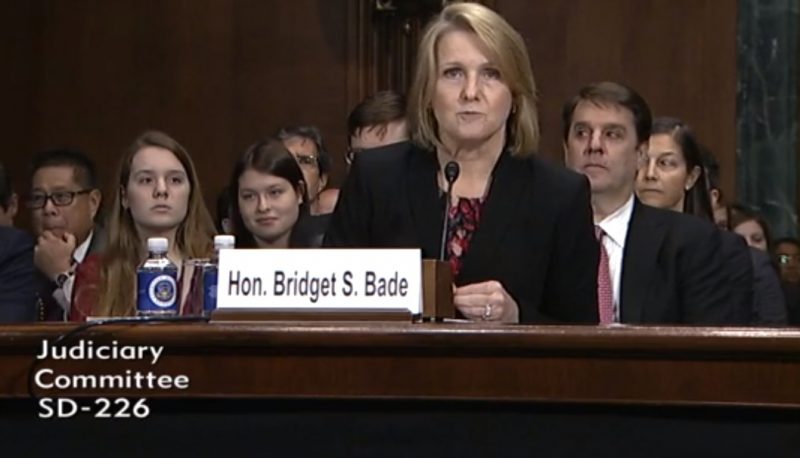“Confirmed Judges, Confirmed Fears” is a blog series documenting the harmful impact of President Trump’s judges on Americans’ rights and liberties.
Lindsay Rogers was studying medicine at the Western University of Health Sciences (Western U), and she sued the school for not providing reasonable accommodations for her disability under the Americans with Disabilities Act and the Rehabilitation Act. A district court dismissed all of her claims before trial. Rogers appealed to the Ninth Circuit, and a three-judge panel ruled that the lower court had been wrong to dismiss two of those claims. But Trump judge Bridget Bade wrote a partial dissent that would have prevented Rogers from pursuing one of those claims to trial. The case is Rogers v. Western University of Health Sciences.
All three judges on the panel agreed that the lower court had correctly dismissed two of Rogers’ claims and had incorrectly dismissed a third. But they split on whether she should have been allowed to go to trial on the question of whether Western U had appropriately handled her request for a schedule change during the spring 2015 semester.
Judge Bade supported the dismissal of this claim. For her, the salient fact was that Rogers had communicated this schedule request to a professor several times and not directly to the school’s Accommodations and Resources Center (AARC), the procedure Western U directs students to follow.
But as the majority explained, there are still facts in dispute that a jury could find affects whether Western fulfilled its legal obligation. For instance, the record does not show whether the professor Rogers repeatedly raised the issue with had held himself out as an appropriate person to handle the request, which could have led her to reasonably believe she did not need to go through AARC. And while Western claimed that Rogers had never identified her disabilities as the reason she needed a schedule change, she said she needed more time between classes because the “double-time” exam accommodation she was receiving left no time between morning exams and afternoon classes.
There were clearly genuine disputes of material fact about Lindsay Rogers’ requested schedule change that were appropriate for a jury to decide. Over Judge Bade’s dissent, Rogers will have an opportunity to make her case.

